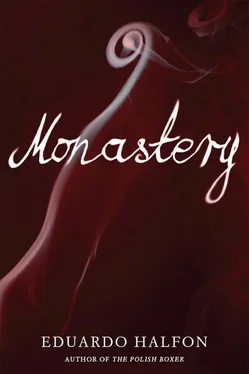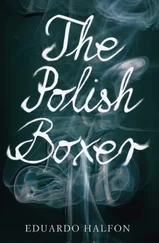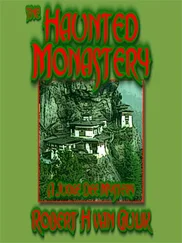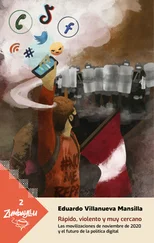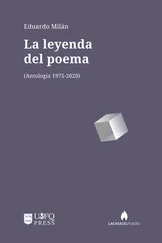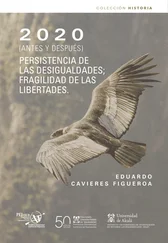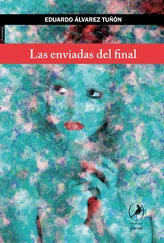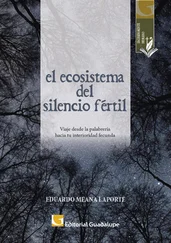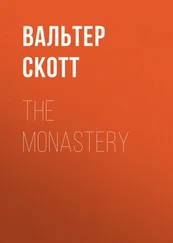Please excuse me, Don Juan whispered, and leaned in a bit closer to me, as though about to tell me a secret. The two of us only just fit on the bench. In front of us, the women had nearly finished cooking dinner. None of them seemed to notice the neighbor’s evangelical cries. We were out checking on my coffee plants, Juan said, out on my farm. Then added: San Andrés Farm, it’s called. And he smiled an enormous white smile.
Don’t pay any attention to him, Eduardo, Iliana said from the stove. That’s what he named his little coffee plots. She turned to us. You see, my father loves naming things, she said.
Don Juan crossed his arms and sat watching his five daughters. Iliana Lucía, he suddenly whispered. Iliana because we saw that name in the paper, and Lucía because that was the name of a nun who used to come out from the capital back in the eighties to teach the town’s children. He paused for a moment. Judit Orquídea, he said, pointing with his eyes. Judit because my wife was always taken by Judit in the Bible, for her bravery, for her dedication, and Orquídea because someone told us that was the name of a flower, and what a pretty name for a girl, no? Another daughter scurried by, once again chasing after the three- or four-year-old girl, and Don Juan took her hand and held it in his as he spoke. Regina Guadalupe, he said. Regina because that was the name of the American nun who used to teach our catechism class, and Guadalupe, Señor Halfon, because my family is very devoted to the Virgin of Guadalupe. He kissed his daughter’s hand, let it go, and glanced over at the comal. Patricia Amarilis, he said. Patricia just because my wife always liked that name, and Amarilis because in those days there was a woman who used to come to town, a teacher, and she was never able to have her own children, so she asked my wife to name a daughter Amarilis for her, and that’s what we did, in her honor. Hitler had roused himself and was now prowling around our feet. I pulled him onto my lap and the cat got comfortable between my thighs and then dozed off almost immediately. Teresina Mancruz, said Don Juan. Teresina was a nun who came to Huehuetenango to teach the village children to read, and Mancruz, Señor Halfon, because back then we used to listen to the radio, since there was no electricity in town and radios ran on batteries, and Mancruz was the name of the protagonist on a Mexican soap opera. Don Juan smiled, and I realized that he still hadn’t said anything about the name of his only son, the son in the garden photo, the dead son. But I didn’t dare ask. Instead, I just asked him why he’d named his farm San Andrés, and Don Juan smacked his lips, as though to thank me for my complicity, and then whispered that it was for a priest he’d met when he was young, there in town. Father Andrés, he added. A good man, he added. I suddenly thought I saw his eyes begin to get misty, but the kitchen was dark and smoky and I couldn’t be sure. We kept silent for a moment, and I got a fleeting urge to hug Don Juan Martínez. Maybe for consolation. Maybe for his nostalgic tone and his sad and subtle sense of humor. Or maybe for reasons much more my own.

ON THE DINING ROOM TABLE sat a roast chicken with pineapple and herbs, whole potatoes in butter, avocado crescents, hot tortillas wrapped in a dish towel, and a jug of coffee. In Guatemalan towns, it’s customary to drink watered-down coffee with dinner.
Iliana’s sisters helped set the table and then left. Doña Ernestina sat at the head of the table, said they had all had their dinner earlier, and only poured herself a cup of coffee. Hitler, on the prowl and begging under the table, was going crazy with all the food smells. The evangelist was still delivering his sermon, providentially muffled by the thick adobe walls and a light drizzle falling on the corrugated tin roof. As Doña Ernestina dished me out a little of everything, I asked Don Juan how the co-op got started and he said it had been a project of the Maryknoll Fathers, a North American Roman Catholic missionary congregation that was very committed to helping Guatemalan communities in the sixties and seventies. He said that’s how they got their name, Cooperativa Esquipulas, after the famous Black Christ of Esquipulas, the town’s patron saint. He said, looking at his wife, that they had both worked with the Maryknoll Fathers quite a bit. I was their driver, he said, and Ernestina their cook. That was many years ago, he said, spreading avocado on a tortilla. Before all the priests had to flee the country, he said, during the difficult years — Don Juan’s euphemistic way of referring to the decades of war between the guerillas and the army. Well, said Iliana, the priests who got out in time, at least, before they were murdered or disappeared by the military. We remained silent a few seconds, as though cautious in the face of so weighty a topic. Or as though in memory of the many priests murdered and disappeared. The Maryknoll idea was that if we started a co-op, said Don Juan, that if all the small coffee growers in the region banded together, if the poor united, then we’d be stronger and more able to compete with the two or three big plantations, the rich ones. Don Juan took a sip of coffee, and I thought briefly of the word solidarity, a word that to me, until that moment, had been nothing but an old, worn-out word, a word in disuse, a word from another generation. And were they right? I asked. Did the Maryknoll idea work? Don Juan took another sip of his thin coffee, put down his cup, softly stroked Iliana’s forearm as she sat on his left, and said: Now, after almost fifty years of having to endure trouble and persecution and extortion, I can say that yes, Señor Halfon, it worked.
I ATE IN SILENCE, attempting to piece together — through the narrative chaos and the neighbor’s evangelical ruckus — the onslaught of trouble and persecution and extortion. Don Juan, salting a potato: The co-op almost went under during the difficult years. Doña Ernestina, snatching the shaker from her husband: At that time, holding meetings was very dangerous. Don Juan, in a sad voice, an invisible shaker still in his hand: In the difficult years, saying the word co-op was almost like saying a bad word. Iliana, sucking on a leg bone: Plus, for years there were several directors who stole money from the co-op. Doña Ernestina, refilling my coffee without asking: The last one, a man from right here, stole over a million pesos. Don Juan: Getting rid of him took a lot of doing, but we finally got rid of him. Doña Ernestina: In this country, it’s hard to be honest. Iliana, with Hitler’s front paws on her knees: Then came the coffee crisis, in 2001 and 2002. Don Juan, shaking his head: During those years, the New York Stock Exchange told us we had to sell a quintal of coffee for fifty dollars. Iliana, caving in, giving Hitler the bone: Today we know exactly what a quintal of our coffee costs. Don Juan, grabbing a lime wedge: Some Englishmen came. Iliana: That is, today we know that producing a quintal of our coffee costs a coffee grower one hundred and twenty-five dollars. Don Juan, squeezing the lime onto an avocado crescent: You see, some Englishmen came to conduct an economic study, and that’s what they told us, one hundred and twenty-five dollars per quintal of coffee, net cost. Doña Ernestina: Imagine, the coffee growers worked for two whole years just to lose money. Don Juan, with avocado fingers: But those men from the New York Stock Exchange, who had never in their lives so much as laid eyes on a coffee plant, still made money. Iliana, smiling: That’s right. Don Juan, also smiling: Nothing new, right? Doña Ernestina, standing: And that’s when the Italian showed up. Don Juan, with a sigh, almost in unison: The Italian showed up. Doña Ernestina, now far from the dining room, maybe far from it all: You tell him, Juan, the story of the Italian. Hitler, as though terrified and hiding under the table, meowed.
Читать дальше
